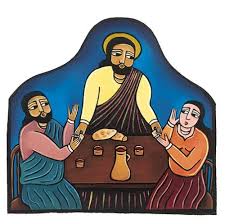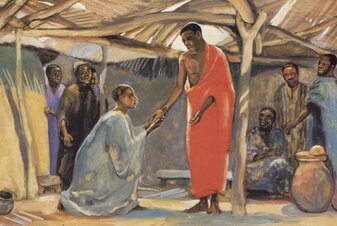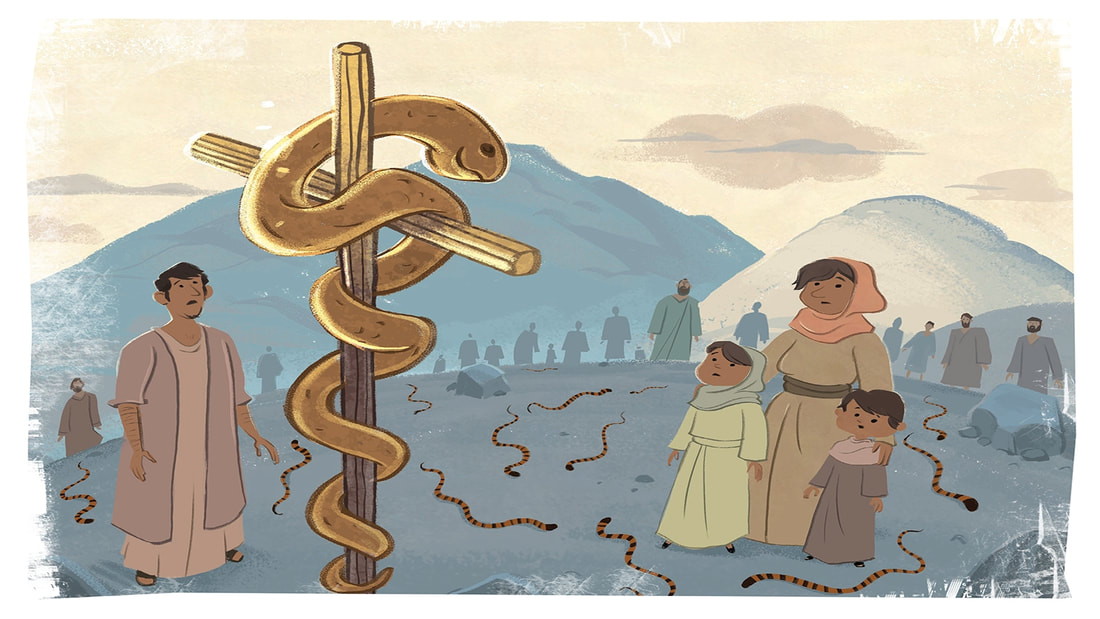
Do you know in the world today, from the mountains of the American West to the highlands of Peru and Chile there are still working shepherds? Shepherding is among the oldest professions -it’s said it’s been around for 6,000 years. Tensions increased in Israel this past week when the body of a14 year old shepherd, Benjamin Achimeir, was found shot to death in the West Bank after going missing for a day.
In our modern life, shepherds aren’t exactly a booming career. How many of us have seen a shepherd lately on the LIRR or walking down Merrick Avenue? Has anymore ever actually seen a shepherd in person? Where at? For those lucky few who have seen shepherds, it’s been a visit to an agrarian region of a remote countryside. Most of us only know shepherds from pictures in books. We know far more about teachers, lawyers, doctors, businesspeople, and accountants than we do about shepherds.
To learn about shepherds, especially the kind of shepherd Jesus declares himself to be for us, we have to place ourselves back in Jesus’ day. We must go back in the times of the bible, when shepherds where everywhere and sheep were commonplace. Sheep are mentioned 500 times in the bible, more than any other animal. Sheep were raised for wool, meat and milk, their skins were used to make parchment. They were used for sacrifices in the temple. They were a primary source of income in the ancient Middle Eastern cultures. The crowds around Jesus daily saw shepherds at work and regularly heard stories about them from their scriptures, unlike us who are not familiar with the role. God is described as a shepherd in Genesis 48:15, as Jacob, on his deathbed, summarizes his life, and declares that God had been his “shepherd all of his life to this day.” Just as David wrote in the beloved Psalm 23: “The Lord is my shepherd; I shall not want.” In the last book of the bible in Revelation, we find in Chapter 7:7: For the Lamb which is in the midst of the throne shall be their shepherd. Revelation 7:17. So, Shepherds, like sheep, are a major fixture in the Bible. Just as sheep often symbolizes God’s people, a Shepherd represents God, and represents the leaders of the people. It serves us well to dig deeper into Jesus’ words, “I AM the good Shepherd.”
Shepherds had to be gusty, brave, long suffering, self-sufficient and able to put up with humiliation – the job was not held in high esteem. Because it was a smelly, dirty, 24/7 kind of job, shepherds were considered an unclean profession in the Jewish Law, the lowest of the low. When Joseph’s brothers came to live in Egypt he told them “Don’t tell Pharaoh you are shepherds, say you keep livestock because “all shepherds are abhorrent to the Egyptians.”
We know David, the youngest of Jesse’s sons had to do the lowly shepherd’s job – he was dumped on. Yet God chose shepherds as the first visitors to the baby Messiah. So, when Jesus says, “I am the Good Shepherd,” he humbles himself as he became one with them.
Although shepherds were at the bottom rung of the ladder, Shepherds had a significant job. Let’s face it: sheep are a handful. They are defenseless, fearful, prone to stray, they have poor eyesight, they have a poor sense of direction, they tend to follow other sheep without thinking, they were stubborn. There are stories of sheep being stuck on the back, dying because unable to turn themselves over. With all that shepherding entailed: in all its grueling aspects, why is it the one profession Jesus identifies himself with?
It’s important to note Jesus doesn’t call himself the Good Carpenter. He doesn’t call himself the Good Rabbi. He doesn’t call himself the Good Soldier. He doesn’t call himself the Good Emperor. He calls himself the Good Shepherd. Out of all the even famous I AM statements Jesus makes in the gospel of John, I AM the good Shepherd, is the only one that defines a profession. So, why did Jesus call himself the Good Shepherd?
Jesus identifies with Shepherds because of the absolute devotion Shepherds had for their flock. Shepherds poured their lives into caring for the sheep. Jesus is the shepherd in Luke’s parable who will leave the flock to find one lost, scared sheep. Jesus is the shepherd who acts as a gate for the sheep, keeping predators at bay. Jesus knows his sheep: he knows they are defenseless; he knows they lack direction and need to be led, he knows they become restless and need attention, he knows if they fall, they cannot get back up on their own, he knows their wool is constantly growing and needs grooming, he knows they are picky eaters and need plenty to drink. Jesus knew that throughout the Bible the people of God are constantly compared to the likes of sheep. The prophet Isaiah (53:6) says “All of us were like sheep that were lost, each of us going his own way.” As the Psalmist reminds us: (100:3)” Know that the LORD is God. It is he who made us, and we are his; we are his people, the sheep of his pasture.”
Whenever Jesus uses the image of a shepherd for himself, the point is, as the good shepherd, he will dedicate and risk his life for his sheep. He will let himself be killed rather than see one single sheep harmed. .
In our passage today, Jesus talks about the important difference between the good shepherd and the hired hand. The hired hand was only there for the money and would only stay as long as it was easy. When a crisis erupted, when challenged by any threat or danger, the hired hand splits. This employee had no relationship with the animals; it was just a job. Jesus was also aware of the frequent condemnation of bad shepherds in the Bible: The prophet Ezekiel spoke passionately against the corrupt leaders of Israel (34:1-31): “Thus says the Lord God: Ah, shepherds of Israel who have been feeding yourselves! Should not shepherds feed the sheep? You eat the fat, you clothe yourselves with the wool, you slaughter the fat ones, but you do not feed the sheep. The weak you have not strengthened, the sick you have not healed, the injured you have not bound up, the strayed you have not brought back, the lost you have not sought, and with force and harshness you have ruled them. So, they were scattered, because there was no shepherd, and they became food for all the wild beasts.” Unlike these bad shepherds who cared only for their own well-being, unlike the hired hand, Jesus is the shepherd whose life was consumed with the welfare of the sheep.
Jesus also told his disciples that as a good shepherd he not only would protect them, but that he knew each and every one of them. Each and every sheep of his flock was known to him and in relationship with him. The Good shepherd knows the personality of each sheep. This knowledge wasn’t head knowledge, but heart knowledge. To the listening crowd this message was clear. They knew that good shepherds got to know all the sheep in their care, and that these sheep also knew the shepherd and would respond only to their shepherd’s voice. It’s the kind of knowing of a mother for her child’s cry. It’s the kind of knowing how best friends can finish each other’s sentences. It’s the kind of knowing of a God who knew us even before we were formed in the womb (Jer. 1:5), who knows the word of our mouths before they are spoken (Ps. 139:4), who knows when we sit or rise, and perceives our thoughts from afar.
The people heard what Jesus said and could relate to his message. Here was someone who wanted to know them and to protect them and love them. We hear it too. How wonderful to feel and know that Jesus cares. He cared for the crowd around him. In the same way he cares for us today. Jesus laid it down his life freely in love and for love. In our passage tonight Jesus mentions five times that he lays down his life for his sheep. So, Jesus knows us, loves us, and lays down his life for us. That is a good shepherd.
So often we feel undeserving; we are aware of our far we have fallen short of living the way God wants us to live. Who here hasn’t fallen short? Who here hasn’t been stubborn like a sheep, insisting on our own way, not God’s way? Who here hasn’t felt vulnerable to outside temptations? Who hasn’t fallen under the influence of the crowd? Who here feels down and out without a way to get back up on our feet? Who hasn’t been lost in the wilderness, far from the safety of community? In the midst of the dangers and temptations of life, we are reminded that Jesus the Good Shepherd is at our side, ready to lift us up, carry us on his shoulders, and lead us back to paths of righteousness.
Even though our familiarity with sheep and shepherds is not the same as the first century followers of Jesus, we still need a good shepherd.
We still live in a dangerous world. Wolves in all shapes and sizes abound. We need someone who can see every wolf that runs our way and who will risk being killed rather than abandon any one of us sheep. We need someone with the vision and the wisdom to lead us safely through the perils of life. We need someone who knows us intimately, who loves us unconditionally and is completely devoted to us, 24/7. That would be Jesus the Good Shepherd.
Everybody needs a Good Shepherd. Not a Good carpenter. Not a Good Rabbi. Not the Good Emperor. We need a shepherd. A shepherd who knows and hears your voice. A shepherd who lays down his life to save you. Wherever you are out in life, call out to Jesus. Today let him lift you up on his shoulders, let him carry you home, safe and secure, fully known, fully protected, and in whose care you shall not lack for anything. Amen
https://www.wonderopolis.org/wonder/are-there-still-shepherds-today









 RSS Feed
RSS Feed